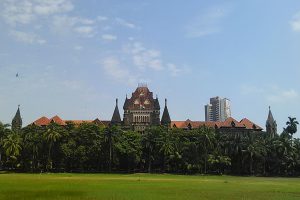Bombay High Court: K.R. Shriram, J., dismissed an appeal filed by the Union of India against the order of the trial court whereby the respondents were acquitted of offences under various provisions of the Customs Act, 1962.
The respondents were accused of illegal dealing in foreign marked gold biscuits. Pursuant to information received, the Directorate of Revenue Intelligence affected a raid and search of premises where they found the respondents and recovered 24 marked gold biscuits along with large quantities of foreign and Indian currency. The respondents were brought to the DRI Office. Summons were issued to them under Section 108 of the Customs Act and their statements were recorded. After completion of the investigation, a complaint was filed against the respondents. Before the trial court, the respondents took the stand they were poor villagers who came to Mumbai in search of work. While searching for a job, somebody gave them the address of the said premises, and they had reached there just a couple of minutes prior to the raiding party. At the conclusion of the trial, the respondents were acquitted by the trial court, Aggrieved thereby, the Union of India filed the instant appeal.
The High Court noted that the respondents had, at the first opportunity, filed an application before the Metropolitan Magistrate for retracting their statements recorded under Section 108. The prosecution asserted that the statements of the respondents were voluntarily and correctly recorded without any force or inducement. However, the High Court found that there was no independent corroboration by any witness of the Section 108 statements of the respondents.
Discussing whether the statement of respondents was to corroborated, K.R. Shriram, J. observed, “If I have to simply accept the statement recorded under Section 108 as gospel truth and without any corroboration, I ask myself another question, as to why should anyone then go through a trial. The moment the Customs authorities recorded the statement under section 108, in which the accused has confessed about his involvement in carrying contraband gold, the accused could be straightaway sent to jail without the trial court having recorded any evidence or conducting a trial.”
The Court reiterated that in absence of any corroboration by an independent and reliable witness, a statement recorded under Section 108 in isolation could not be relied upon.
Furthermore, it was also noted that the Judgment of acquittal was passed in 2001 and more than 19 years have passed since. In such view of the matter, the High Court held that the order of acquittal passed by the trial court did not warrant interference. Accordingly, the appeal filed by the Union of India was dismissed. [Union of India v. Kisan Ratan Singh, 2020 SCC OnLine Bom 39, decided on 07-01-2020]

